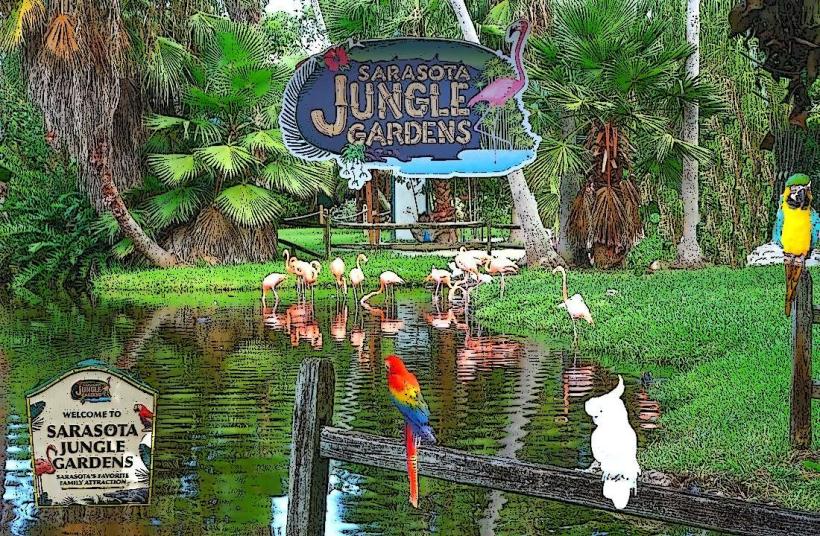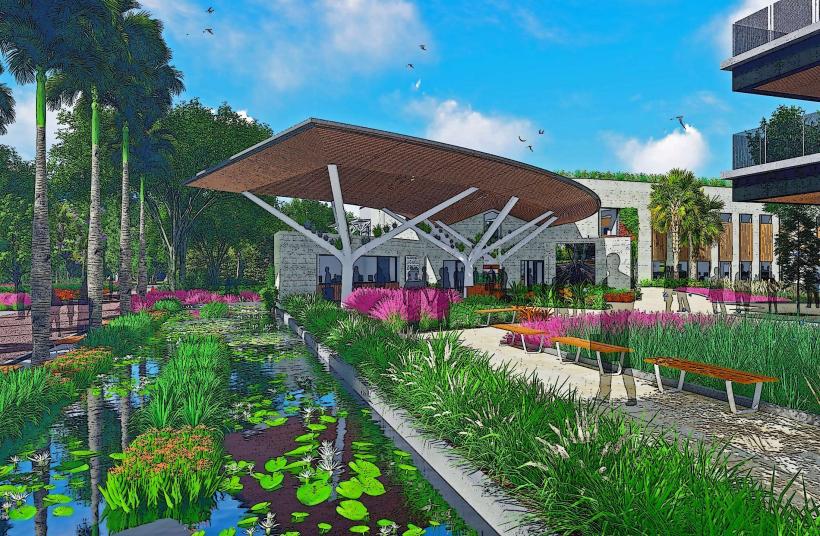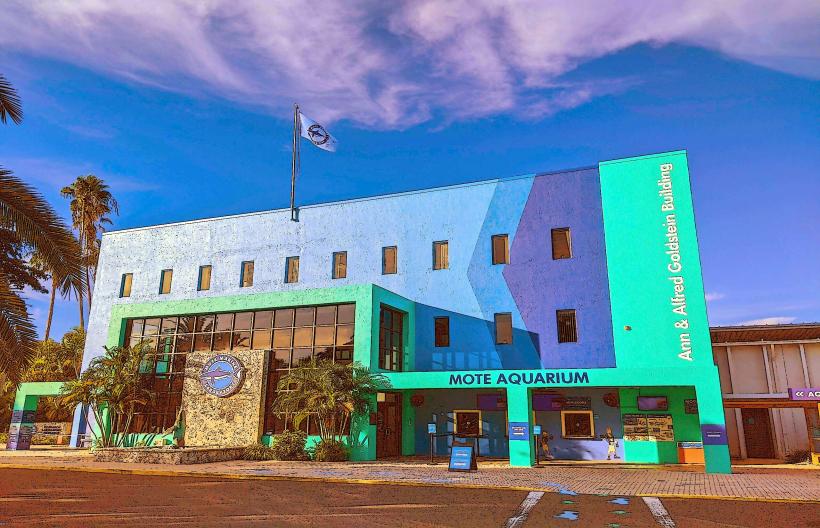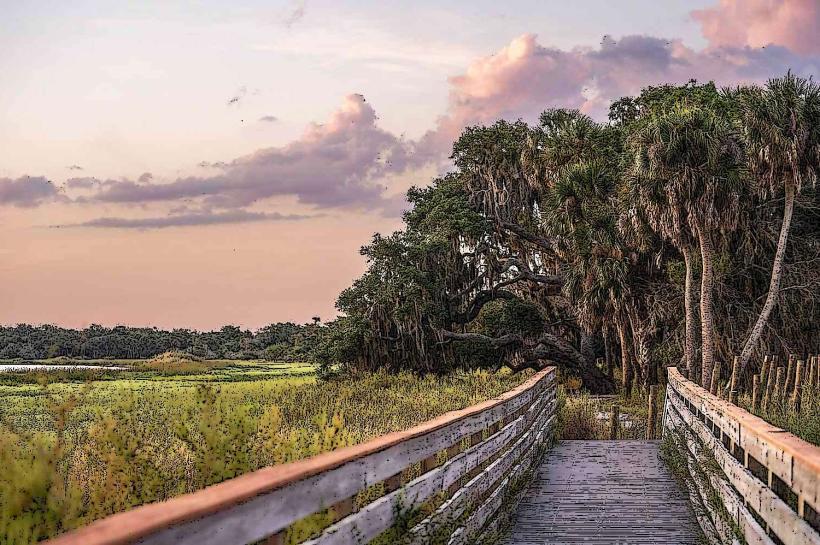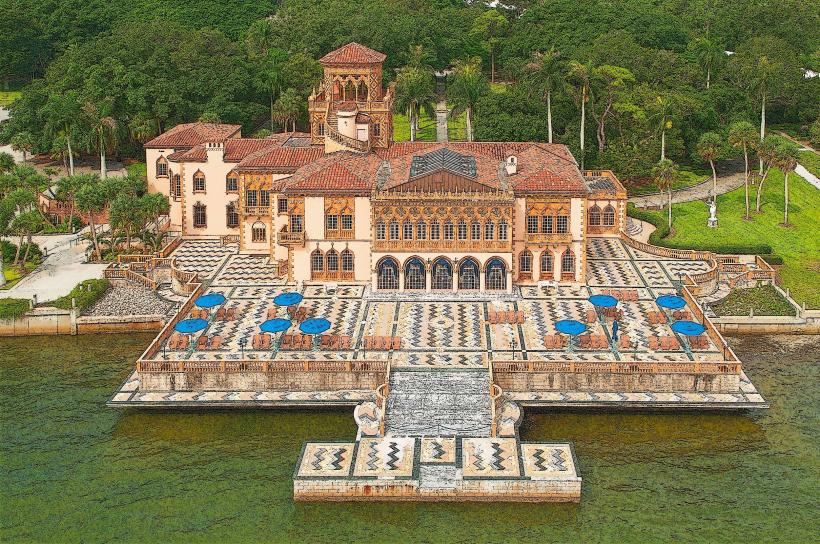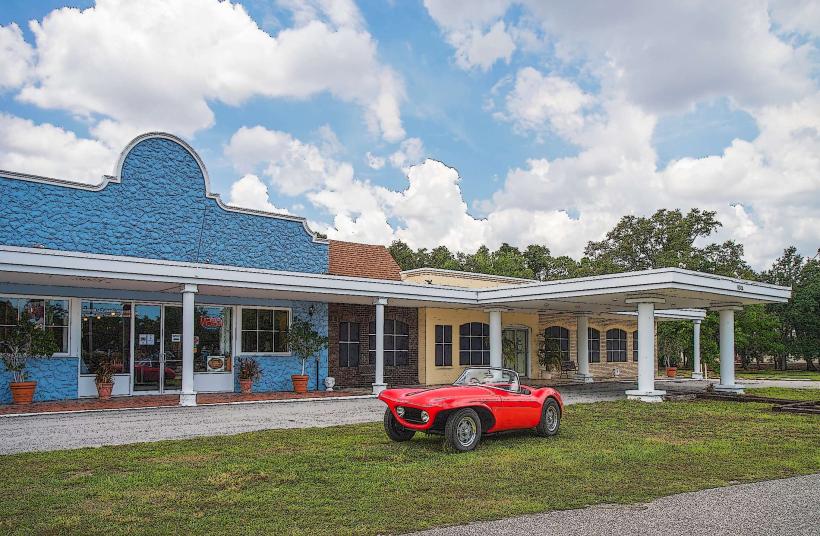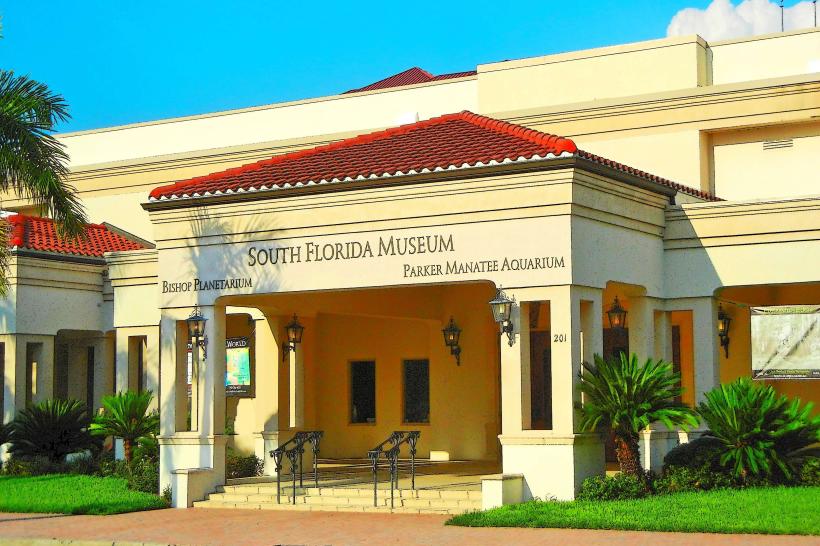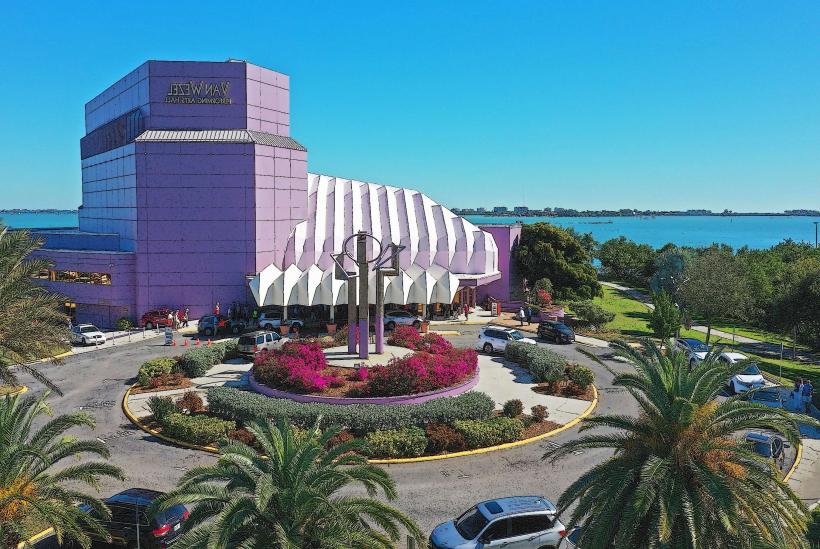Information
Landmark: RinglingCity: Sarasota
Country: USA Florida
Continent: North America
Ringling, Sarasota, USA Florida, North America
The John and Mable Ringling Museum of Art, often simply called The Ringling, is a vast cultural campus in Sarasota, Florida. It was founded by John Ringling, one of the famous Ringling brothers of circus fame, and his wife Mable Ringling. The museum and its surrounding estate are among the most important cultural landmarks in the state of Florida. Here is a detailed exploration of all its major components:
1. The Museum of Art
Founding and Purpose
In 1927, John Ringling established the museum to fulfill his and Mable's dream of creating a cultural legacy. He donated his extensive European art collection and 21-gallery museum to the people of Florida.
Architecture
The museum is inspired by Italian Renaissance architecture. It surrounds a beautiful courtyard with classical statues, including a full-size replica of Michelangelo’s David.
Collection Highlights
One of the largest collections of Peter Paul Rubens paintings in the world, displayed in massive proportions in a grand gallery.
Old Masters such as Velázquez, Titian, Veronese, El Greco, Poussin, and Gainsborough.
A significant collection of Baroque and Renaissance art.
Decorative arts, sculptures, tapestries, and Asian art.
Over 10,000 works of art covering multiple periods and regions.
Exhibition Space
The museum includes permanent galleries as well as rotating exhibition spaces in the Searing Wing, which hosts temporary and contemporary shows.
2. Ca’ d’Zan (House of John)
Overview
Ca’ d’Zan is the Ringlings’ waterfront mansion on Sarasota Bay. It was built in 1924–1926 for about $1.5 million (equivalent to over $20 million today).
Architectural Style
Inspired by Venetian Gothic palaces, especially the Doge’s Palace in Venice. Architect Dwight James Baum designed it, while Mable Ringling oversaw much of the interior decor.
Features
36,000 square feet, 5 floors, 56 rooms.
Hand-painted ceilings, marble floors, grand ballroom, and a stunning stained-glass solarium.
A 66-foot tower overlooks Sarasota Bay.
Lavishly furnished with European antiques, tapestries, and objets d’art.
Restoration
After falling into disrepair, Ca’ d’Zan underwent a $15 million restoration completed in 2002, returning it to its original splendor.
3. Circus Museum
Purpose
Created in 1948, it was the first museum in the U.S. dedicated to circus history. It showcases the story of the American circus, with a focus on the Ringling Bros. legacy.
Key Exhibits
Howard Bros. Circus Model: A massive 3,800-square-foot miniature replica of an early 20th-century circus, complete with detailed tents, wagons, animals, and performers.
Authentic circus wagons, wardrobe, posters, photographs, and parade elements.
Interactive exhibits, including a chance to try walking a virtual tightrope or learning about clowning techniques.
Memorabilia from the Ringling Bros. and Barnum & Bailey Circus.
4. Historic Asolo Theater
History
Originally constructed in 1798 in Asolo, Italy, this ornate wooden theater was dismantled, shipped to Sarasota, and reassembled at The Ringling in 1952.
Function
Today, it serves as a performance space for:
Live theatrical productions
Classical and contemporary music
Lectures, symposia, and film screenings
The theater retains its original 18th-century charm, complete with a proscenium stage, gilded ornamentation, and opera boxes.
5. Bayfront Gardens
Overview
The Ringling estate spans 66 acres, featuring beautifully maintained formal gardens, scenic paths, and waterfront views.
Main Areas:
Mable Ringling’s Rose Garden: The oldest rose garden in Florida, arranged in a wagon-wheel pattern with over 1,200 roses.
Dwarf Garden: Contains whimsical stone statues imported from Europe.
The Secret Garden: Where John and Mable Ringling are buried beneath a cluster of banyan trees.
Bayfront Promenade: Overlooks Sarasota Bay with views of the mansion and expansive lawns.
6. Chao Center for Asian Art
Opened: 2016
Focus: A modern addition dedicated to the museum’s growing collection of Asian art, including works from China, India, Japan, Korea, and Southeast Asia.
Features:
Asian sculpture, ceramics, paintings, and metalwork.
Lecture halls, teaching galleries, and conservation labs.
7. Glass Pavilion and Contemporary Art
Kotler-Coville Glass Pavilion: Opened in 2018, it houses contemporary studio glass art.
Monda Gallery for Contemporary Art: Focuses on post-1950 works and global contemporary pieces.
Features immersive installations, video art, and sculpture.
8. Education and Events
The Ringling offers a wide range of programs:
Family Saturdays, Art-Making Workshops, and Tours for Kids
Art After 5: Extended evening hours with performances and gallery talks
College Programs through partnerships with Florida State University (FSU), which operates the museum
Annual festivals and cultural events, such as Ringling International Arts Festival
Governance and Legacy
After John Ringling’s death in 1936, the museum passed to the State of Florida. Since 2000, it has been operated by Florida State University as part of the FSU Ringling Center for the Arts. Major renovations and expansions in the early 2000s helped transform The Ringling into a world-class museum complex.

